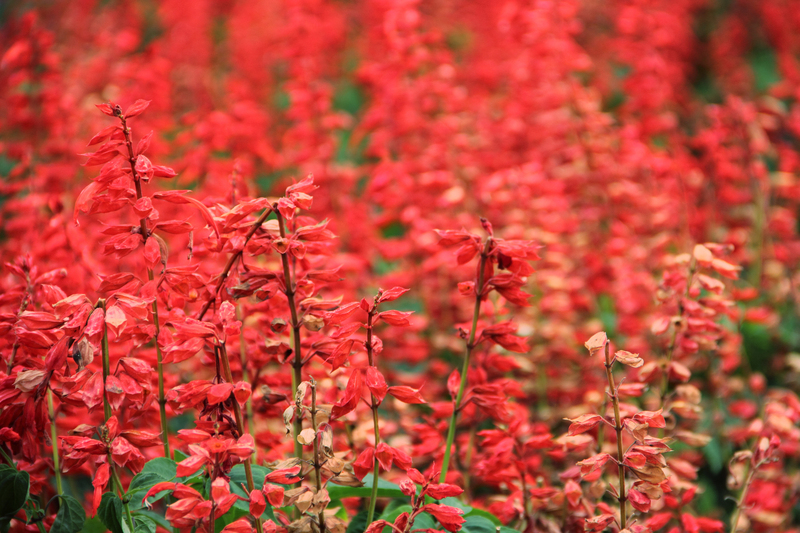Tips for Handling Excessive Garden Rain
Posted on 26/08/2025
Excessive rain can wreak havoc on your garden, causing issues like root rot, soil erosion, and nutrient loss. However, with the right strategies, you can mitigate the impact and keep your garden thriving. In this article, we will explore some effective tips for handling excessive garden rain, the pros and cons of different methods, key takeaways, and a summary conclusion.
Assess Your Garden's Drainage
One of the first steps in managing excessive rain is to assess the drainage system in your garden. Without proper drainage, water can accumulate and drown your plants. Ensure that your garden has an adequate slope to allow water to flow away from plant roots. Consider installing drainage solutions like French drains or rain gardens to help manage excess water.

Create Raised Beds
Raised beds are an excellent solution for gardens prone to flooding. By elevating the soil, you create a barrier between your plants and excess water. This helps keep the roots dry and prevents issues like root rot. Additionally, raised beds promote better soil structure and enhance drainage, providing a healthier environment for your plants.
Improve Soil Structure
Healthy soil is crucial for managing excessive rainfall. Incorporate organic matter such as compost into your soil to improve its structure and increase its water-holding capacity. Organic matter helps create air pockets in the soil, allowing excess water to drain more effectively. Regularly mulching your garden also helps retain moisture and reduces soil erosion during heavy rains.
Opt for Native Plants
Choosing native plants for your garden can significantly improve its resilience to excessive rain. Native plants are naturally adapted to the local climate and soil conditions, making them more capable of handling heavy rainfall. They have deeper root systems that help absorb excess water and reduce runoff. Additionally, native plants require less maintenance and are more resistant to pests and diseases.
Install Rain Barrels
Rain barrels are an eco-friendly way to manage excessive rain and conserve water for future use. By collecting rainwater from your roof, you can reduce the strain on your garden during dry periods. Use this collected water for irrigation during drier times, ensuring your garden remains hydrated without relying solely on tap water. Rain barrels also help prevent erosion and runoff by reducing the volume of water entering your garden.
Monitor Plant Health
Regularly monitor the health of your plants, especially during periods of excessive rain. Check for signs of waterlogged soil, such as yellowing leaves, wilting, or root rot. Prune any damaged or diseased parts to prevent further spread. Additionally, consider using fungicides to protect your plants from fungal infections that thrive in damp conditions.
Pros and Cons of Handling Excessive Garden Rain
Pros:
- Improved drainage reduces the risk of root rot and other water-related issues.
- Raised beds enhance soil structure and promote healthy root development.
- Using native plants increases garden resilience and reduces maintenance.
- Rain barrels conserve water and reduce erosion.
Cons:
- Initial setup of drainage systems or raised beds can be costly and labor-intensive.
- Native plants may not be as visually appealing as exotic species.
- Monitoring plant health requires consistent effort and attention.
- Using fungicides can disrupt the natural balance of your garden ecosystem.
Tips for Managing Excessive Garden Rain
1. Regularly check and maintain your drainage systems to ensure they are functioning correctly.
2. Use a soil moisture meter to monitor soil moisture levels and prevent overwatering.
3. Implement proper spacing between plants to promote good air circulation and reduce the risk of fungal infections.
4. Apply a layer of mulch around plants to retain moisture and prevent soil erosion.
5. Install rain gutters and downspouts to direct rainwater away from your garden beds.
6. Consider creating a rain garden filled with moisture-loving plants to absorb excess water.

Key Takeaways
- Proper drainage is essential for managing excessive garden rain and preventing water-related issues.
- Raised beds, improved soil structure, and native plants can enhance your garden's resilience to heavy rainfall.
- Rain barrels are an eco-friendly solution for conserving water and reducing erosion.
- Regular monitoring and maintenance of plant health are crucial during periods of excessive rain.
Conclusion
Handling excessive garden rain requires a proactive approach to ensure your plants remain healthy and thriving. By assessing your garden's drainage, creating raised beds, improving soil structure, and opting for native plants, you can effectively manage excess water. Additionally, installing rain barrels and regularly monitoring plant health will help you stay ahead of potential issues. While there are pros and cons to consider, the benefits of a well-managed garden far outweigh the challenges. Implement these tips and strategies to keep your garden flourishing, even during the rainiest of seasons.
Latest Posts
Inspiring Ways to Refresh Your Garden This Autumn Season
A Step by Step Guide to Keeping Artificial Grass Fresh and Spotless
Creative Planting Ideas to Design a Serene Zen Oasis







